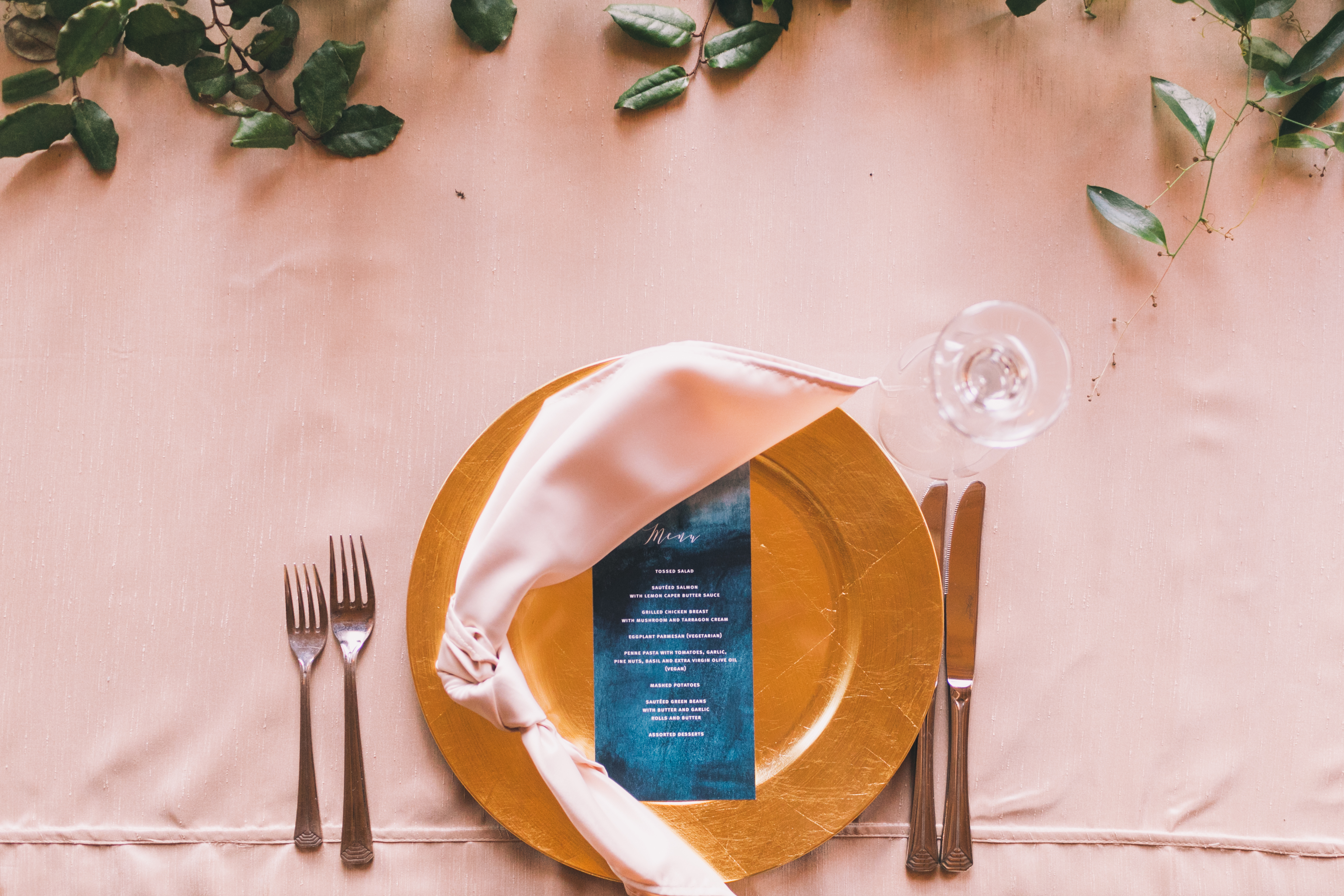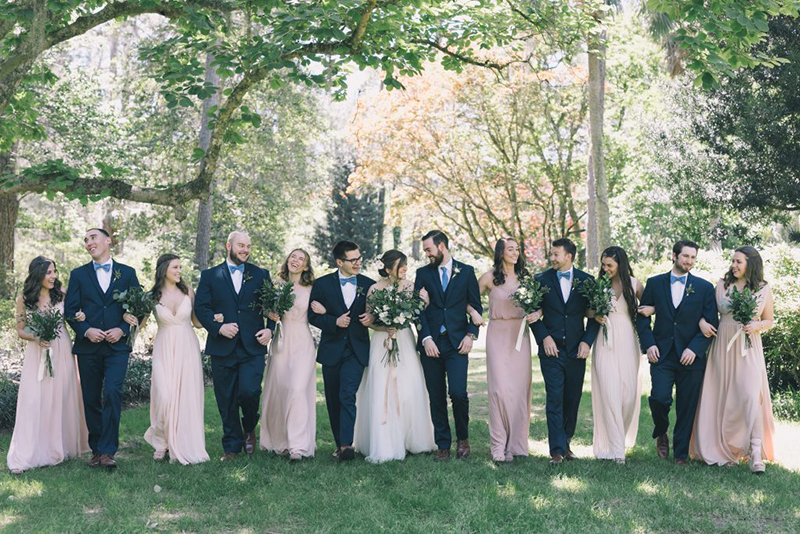How to Plan a Rehearsal Dinner
By Rebecca Padgett Frett
Part of the beauty and fun of a wedding weekend is that it’s not just one day but an entire weekend of celebrating. In many cases, the upcoming nuptials truly becomes a reality when you gather for the rehearsal and the rehearsal dinner.
For the rehearsal itself, the couple, the bridal party, the officiant, the family and anyone else involved in the ceremony will gather and go over the order of events and any other pertinent details. Then it’s off to dinner. If you are having a wedding that is smaller, with only the couple and officiant needing to have a rehearsal, it would still be nice to have a dinner. At its core, the purpose of a rehearsal dinner is to take the time to thank those most involved in your special day.
While planning a rehearsal dinner certainty isn’t as comprehensive as the wedding itself, it does take some thought and special consideration. Planning it should be an enjoyable extension of your wedding.
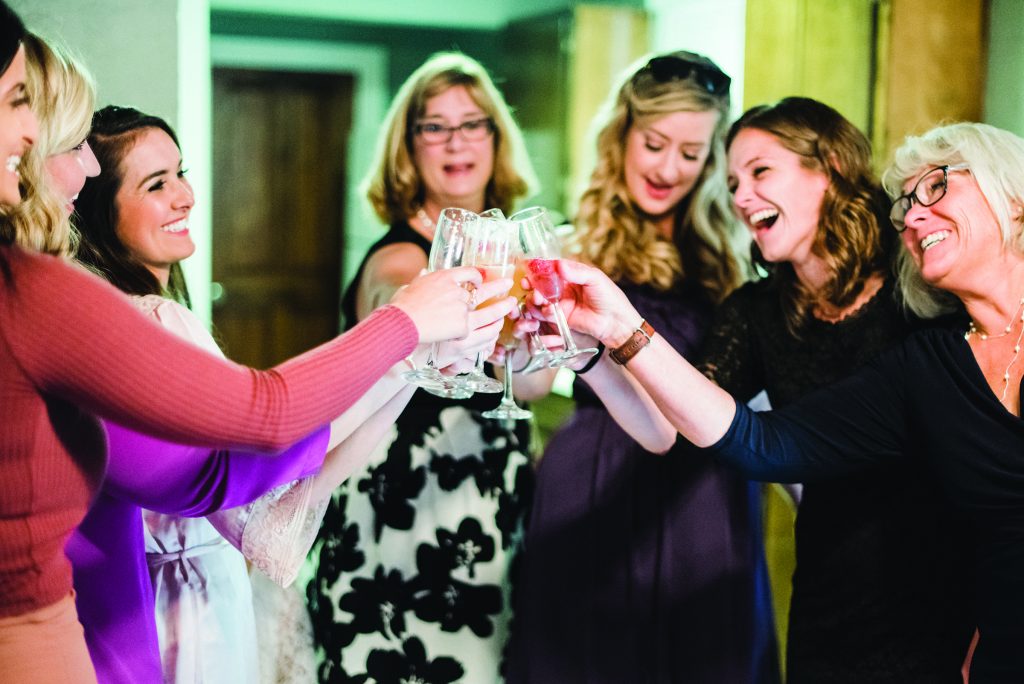
Who Hosts?
The groom’s parents traditionally host the rehearsal, but we are all for breaking or adjusting traditions for whatever fits your needs. Especially since this “tradition” is not inclusive of same-sex couples. Whether it’s the couple’s parents, a family member, a close family friend, someone in your bridal party or the couple themselves, you should decide who makes the most sense as a host. Depending on who hosts, you should meet with them to discuss your expectations for the evening and a budget.
Who’s Invited?
The dinner typically involves the wedding party and their spouses, immediate family and anyone involved in the ceremony, such as the officiant, planner, etc. While you should extend the invitation to your hired professionals, be understanding if they decline or don’t stay the entire time. Remember, they are working the next day. If you are having a small wedding or a destination wedding with the majority of the guests travelling, you could consider opening the rehearsal dinner to all.
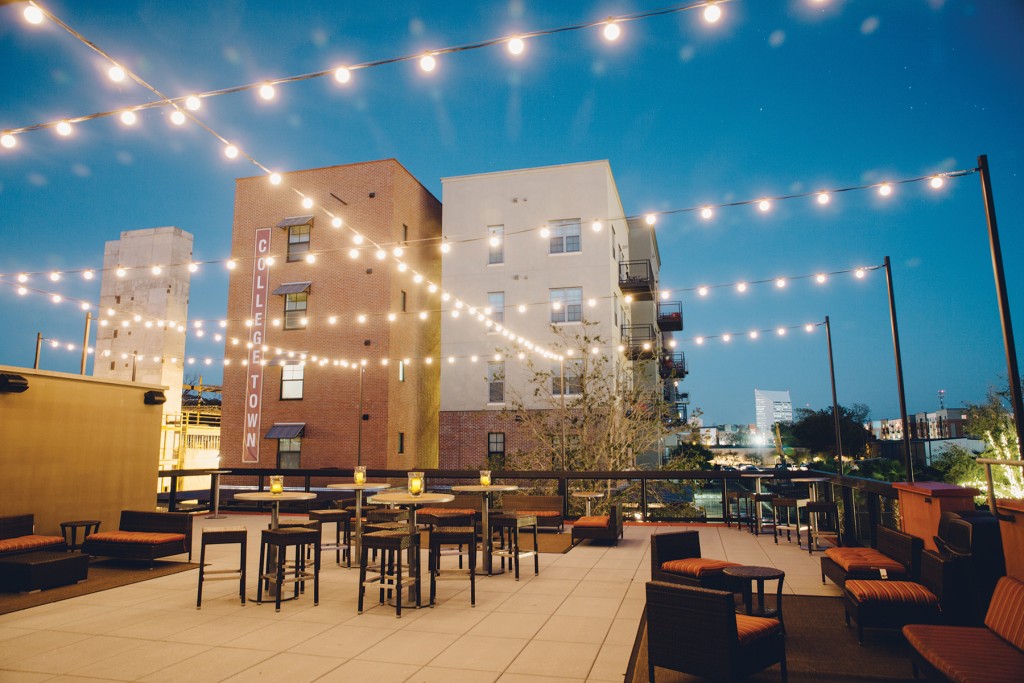
Where’s the Venue?
The options are seemingly endless: the wedding venue, a restaurant, a house, a country club, hotel ballroom, a rooftop, a rented outdoor space and more. Generally, proximity is important. Guests will appreciate if the rehearsal is 15 miles or fewer from their location or the venue itself. Your guests have likely already travelled and don’t want to spend the entire weekend in a car, and for those depending on car services, they don’t want to spend a fortune. When you invite guests, be sure to provide the address, directions and any other transportation details. If it’s in your budget, you could consider a shuttle service, limo or sponsoring rides.
When to Send Invites?
You should send out invites at least six weeks from the wedding date. These need to be separate from the wedding invitation. Printed invitations are always a nice touch, but e-vites are certainly acceptable for a rehearsal and rehearsal dinner. Indicate the location of the rehearsal (the ceremony venue) and the time they should arrive. Most couples try to hold the rehearsal 24 hours before the wedding, if possible. This way you have a good idea of what the lighting will be like at that time of day. On average, a rehearsal takes about an hour. An hour plus the travel time equates to the time dinner should begin. Include an indicator of what guests are expected to wear.

What’s the Theme?
Select a theme that feels right for you and your partner. Some couples incorporate the theme of the wedding while others head in the opposite direction. The dinner can be as formal or informal as you would like. Themes could include a five-course, sit-down dinner, a backyard cookout, an emphasis on cultural dishes, an evening of your favorite foods, a bonfire, etc. Once you know your venue and theme, you can decide what décor is necessary.
What’s on the Menu?
This often correlates with your theme. If you are hosting at a restaurant or hiring a caterer, confer with them to determine foods they offer that align with your theme. It’s wise to consider a menu that’s not a repeat of what will be served at the wedding. When you send invites, be sure to have guests indicate if they have any food allergies or dietary restrictions. Most guests will expect a meal, but if you are only doing hors d’oeuvres, that’s fine as long as you let guests know ahead of time.
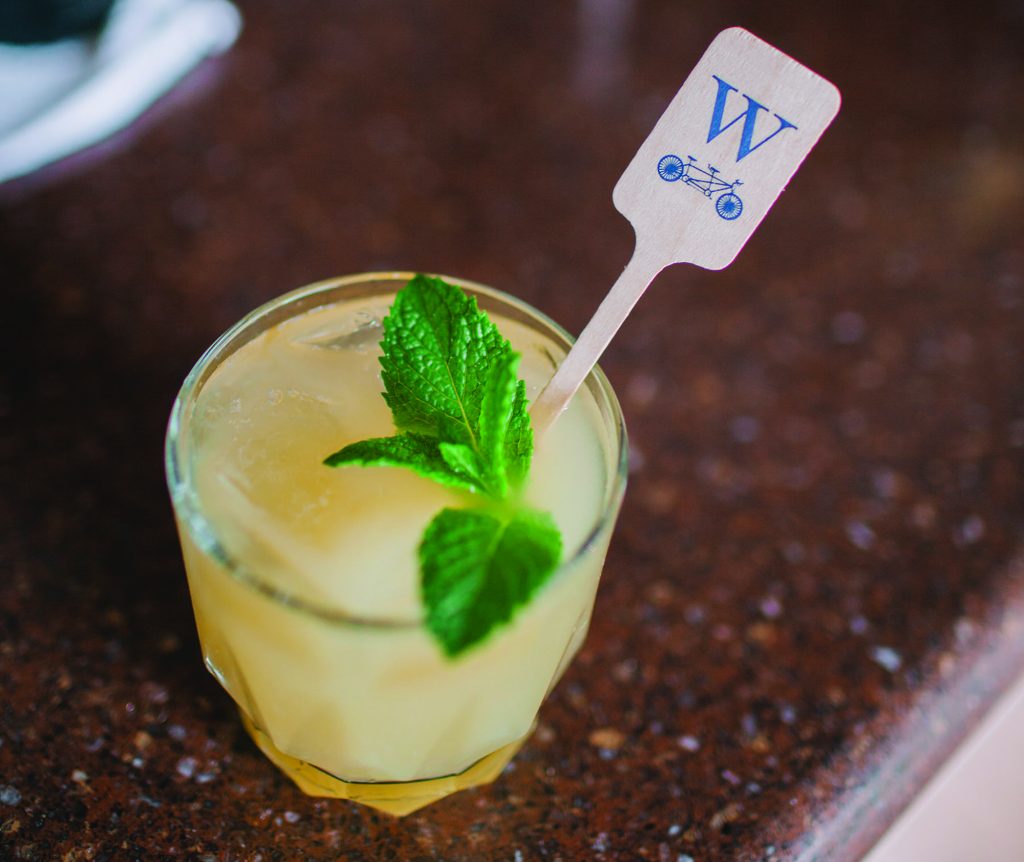
What are You Drinking?
You know your guests best, so you can decide what amount and variety of alcohol is appropriate for the night before your wedding. This might also have to do with your budget. You can let guests know that they have a certain amount of drinks that will be covered, say three for example, and they have to pay for anything outside of that. Or you can have guests give bartenders tickets to indicate how may drinks they have had. A fun option is to also do couple’s cocktails at the rehearsal. This gives guests two unique options. Beer and wine only is another popular option.
Toasts?
Speaking of raising glasses, the rehearsal dinner is the ideal time to open the floor to toasts. Parents, the maid of honor and the best man are often expected to make toasts at the wedding, but the rehearsal allows anyone to chime in. It might be wise to have someone in charge of beginning the toasts then regulating them.
Additional Advice:
Use this time to make any additional announcements. … Decide to give your bridal party and family gifts at the rehearsal or the next day. … If you’re worried you might forget something in the action of the wedding day, the rehearsal is a good time to review. … If it’s something they need to wear or bring the next day, it could be best to hold off until the morning of. … For every alcoholic drink you have, drink a glass of water. … Tell a responsible friend or family member a time you would like to depart for the night and have them hold you accountable. … Take the time to talk with every guest. … And have fun, obviously!

